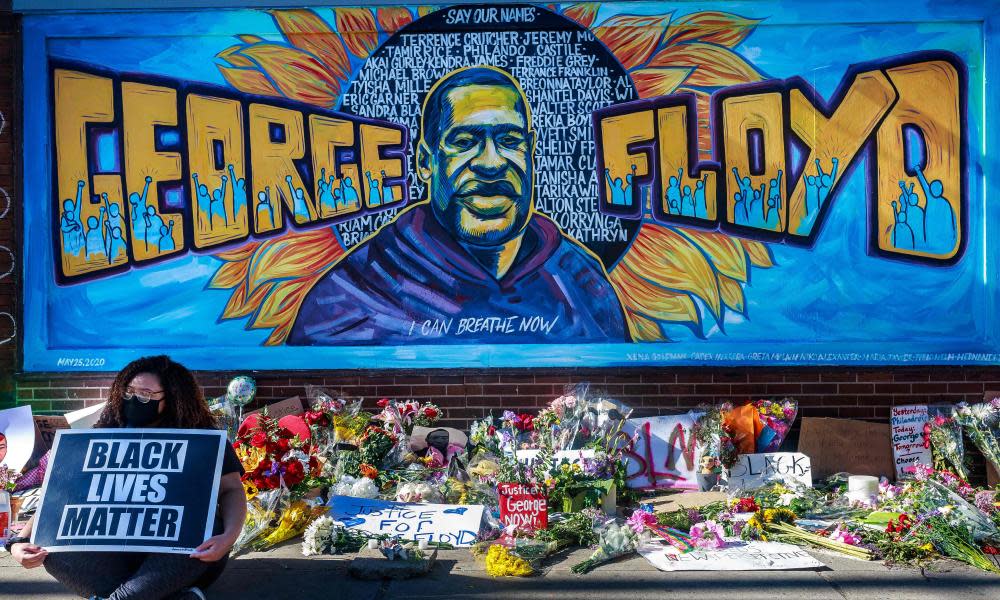The Guardian view on the murder of George Floyd: a racial reckoning begins

The relief that swept through the crowd outside the Minneapolis court, and rippled around the world, was in its own way shocking. The conviction of Derek Chauvin for George Floyd’s murder should have been inevitable. The sight of the policeman kneeling upon the 46-year-old’s neck for nine minutes and 29 seconds, as the dying man pleaded repeatedly that he couldn’t breathe and called out to his late mother, was caught on camera, described by traumatised witnesses, and condemned by fellow officers during the trial.
Yet until the jury’s verdict arrived – guilty on all counts – no one could be certain of it. So many black men, women and children have died at the hands of police without those officers facing trial, let alone conviction, even on lesser charges. If anyone wonders what might have happened without the footage shot by a 17-year-old bystander, they might refer to the initial police account, titled only “Man dies after medical incident during police interaction”.
Eighteen previous complaints had been filed against Chauvin. Three of his colleagues – due to stand trial in August – were involved when Mr Floyd died, and did not stop the officer. US police killed more than three people a day during his trial. They included a 20-year-old black man, Daunte Wright, shot dead less than 10 miles from the courtroom during a traffic stop. A black 16-year-old girl, Ma’Khia Bryant, was shot in Columbus, Ohio, shortly before the verdict. American policing was on trial in Minneapolis. But accountability was achieved for only one victim.
Thankfully, the US president is no longer the man who told police “don’t be too nice”. Instead, Joe Biden urged his country: “This could be a moment of significant change … We can’t leave this moment or look away thinking our work is done.” The justice department’s investigation into the police department is a statement of the administration’s intent, but this goes far beyond Minneapolis. Passing the George Floyd Justice in Policing Act, if it can be done, would be a very small step forward; some states and cities have already passed reforms. Shifting the conduct and ethos of the US’s 18,000 separate police departments is an extraordinarily complex and daunting challenge. Ultimately, a reckoning of the broader issues must include asking whether it makes any sense to fund police so lavishly while other essential services struggle and – hardest of all – redrawing white America’s imagination, though Mr Floyd’s murder has perhaps begun that task.
His death was shaped by specifically American issues around race and policing. Yet the millions who mourned his loss and invoked his name as protests swept the globe, from Brazil to Nigeria to the UK, recognised as well as lamented what had been done to him. The words “I can’t breathe” have been used too many times, in too many places. There have been 1,782 deaths in police custody or otherwise following contact with the police in England and Wales since 1990. But no officer has been convicted of manslaughter, murder or assault in relation to such a death since 1971. As the US president acknowledged America’s long history of systemic racism and called for change, the UK government was defending its swiftly discredited race report, which played down evidence of institutional racism.
Around the world, the unequal toll of the pandemic has brought fresh recognition that structural racism kills, beyond the realm of policing, and given fresh force to the cry that black lives matter. Change will be resisted. Yet without the involvement and engagement of protesters, we might not be here today. Progress is no more inevitable than Chauvin’s conviction was. But the guilty verdict reminds us what is possible, and what must be done.

 Yahoo Movies
Yahoo Movies 
